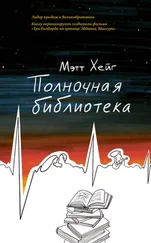Мэтт Хейг - How to Stop Time
Здесь есть возможность читать онлайн «Мэтт Хейг - How to Stop Time» весь текст электронной книги совершенно бесплатно (целиком полную версию без сокращений). В некоторых случаях можно слушать аудио, скачать через торрент в формате fb2 и присутствует краткое содержание. Год выпуска: 2017, Издательство: Canongate Books, Жанр: Современная проза, на английском языке. Описание произведения, (предисловие) а так же отзывы посетителей доступны на портале библиотеки ЛибКат.
- Название:How to Stop Time
- Автор:
- Издательство:Canongate Books
- Жанр:
- Год:2017
- ISBN:нет данных
- Рейтинг книги:4 / 5. Голосов: 2
-
Избранное:Добавить в избранное
- Отзывы:
-
Ваша оценка:
- 80
- 1
- 2
- 3
- 4
- 5
How to Stop Time: краткое содержание, описание и аннотация
Предлагаем к чтению аннотацию, описание, краткое содержание или предисловие (зависит от того, что написал сам автор книги «How to Stop Time»). Если вы не нашли необходимую информацию о книге — напишите в комментариях, мы постараемся отыскать её.
How to Stop Time — читать онлайн бесплатно полную книгу (весь текст) целиком
Ниже представлен текст книги, разбитый по страницам. Система сохранения места последней прочитанной страницы, позволяет с удобством читать онлайн бесплатно книгу «How to Stop Time», без необходимости каждый раз заново искать на чём Вы остановились. Поставьте закладку, и сможете в любой момент перейти на страницу, на которой закончили чтение.
Интервал:
Закладка:
Everything changes and nothing changes .
‘The East End is a multicultural area because it has always been a multicultural area,’ I say, as an opener to the lesson focusing on Pre-Twentieth-Century Immigration. ‘No one was ever a native of Britain. People arrived here. The Romans, the Celts, the Normans, the Saxons. Britain was always a place made of other places. And even what we think of as “modern” immigration goes quite a long way back. Well over three hundred years ago, you had Indians who came here after being recruited on ships run by the East India Company. Then came Germans and Russian Jews and Africans. But it is true that, while immigration has always been a part of English society, for a long time visibly different immigrants were treated as exotic oddities . . . For instance, in the eighteenth century a man called Omai arrived here from the Pacific Islands. He arrived back on Cook’s second voyage . . .’ I pause. I remember sitting on the deck of the boat with him, Omai, my old friend, showing him my daughter’s coin and teaching him the word money . ‘And when Omai came here he was seen as so unique that every celebrity of the day, from the king down, went to meet him and have dinner with him . . .’ I remember his face, flickering in the shadow of a flame. ‘He even had his portrait painted by the most famous artist of the time, Sir Joshua Reynolds. He was a celebrity, for a time. Omai . . .’
Omai .
I hadn’t said his name out loud for a long time. Not since I had spoken to Hendrich about him, in 1891. But I often thought about him. About what happened to him. Thinking of him now, though, seems to add to my headache. Everything spins a little.
‘He was . . .’
A girl on the front row, Danielle, chewing gum, frowns at me. ‘Are you all right, sir?’
Cue laughter. Danielle turns around. Soaks it up.
Steady thyself .
I try to smile at the class. ‘Fine. I’m fine . . . This part of London in particular has always been defined by immigration. For instance, over there’ – I point out of the window, westwards – ‘back in the fifteen hundreds and sixteen hundreds you had the French. They were the first immigrants in great numbers of the modern age. Not all of them stayed in London. A lot went to Canterbury. Others went into rural areas. Kent . . .’ I pause. Breathe. ‘. . . Suffolk. But many based themselves in Spitalfields, and a real community built up. They started the silk industry here. Many of them were silk weavers. Many were former aristocrats who were suddenly having to make a new life for themselves in very different circumstances to the life they knew at home.’
There is a boy sitting on one of the middle tables. Anton. A quiet boy with a brooding and serious look about him. He raises his hand.
‘Yes, Anton?’
‘Why did they come here? I mean, if they had it so good at home?’
‘Well, they were Protestants. Huguenots, they were called, though they didn’t call themselves that. They followed the teachings of Jean Cauvin – John Calvin. And at that time it was a dangerous thing to be a Protestant in France, just as it was to be a Catholic in England. So many of them . . .’
I close my eyes, trying to blink away a memory. The pain in my head becomes too much.
They sense my weakness. I hear their laughter flare up again.
‘So many of them had to . . . had to escape.’
I open my eyes. Anton isn’t laughing. He gives me a small smile of support. But I am pretty sure he, like the rest of the class, thinks I am not quite there .
I feel my heart beat a frenzied jazz rhythm as the room starts to tilt.
‘Just one minute,’ I say.
‘Sir?’ Anton seems concerned.
‘I’m fine. I’m fine. I just . . . I’ll be back in a minute.’
I walk out of the room, down the corridor. Past one classroom. Past another. I see Camille through a window. She is standing in front of a whiteboard full of verb formations.
She looks so calm and in control of the class. She sees me and smiles and I smile back, despite my panic.
I go into the bathroom.
I stare at my face in the mirror.
I know my own face too well to actually see it. Familiarity could make you a stranger to yourself.
‘Who am I? Who am I? Who am I?’
I splash my cheeks with water. I breathe slowly.
‘My name is Tom Hazard. Tom Hazard. My name is Tom Hazard.’
The name itself contains too much. It contains everyone who has ever called me it and everyone I have ever hid it from. It contains my mother and Rose and Hendrich and Marion. But it isn’t an anchor. Because an anchor fixes you in one place. And I am still not fixed. Could I just keep sailing through life for ever feeling like this? A boat has to stop eventually. It has to reach a port, a harbour, a destination, known or unknown. It has to get somewhere , and stop there, or what is the point of the boat? I have been so many different people, played so many different roles in my life. I am not a person. I am a crowd in one body.
I was people I hated and people I admired. I was exciting and boring and happy and infinitely sad. I was both on the right and wrong side of history.
I had, in short, lost myself.
‘It’s okay,’ I tell my reflection. I think of Omai. I wish I knew where he was. I wish I hadn’t just let him go without trying to keep in touch. It is lonely, this world, without a friend.
The slow breaths get my heart rate down. I dry my face on a paper towel.
I walk out of the toilets and back down the corridor and make an effort to keep looking ahead, to not look into Camille’s classroom as I make my way back to my own. To act like a normal non-shitty teacher with only, say, forty years of memories inside him.
I head back into the classroom.
‘Sorry about that,’ I say, trying to smile. Trying to be light. Trying to say something amusing. ‘I took a lot of drugs when I was younger. I get the occasional flashback.’
They laugh.
‘So don’t do drugs. It can lead to a life of mental torment and history teaching in later life. Right, okay, on with the lesson . . .’
I see Camille again that day. Afternoon break. We are in the staff room. She is talking to another language teacher, Joachim, who is Austrian, and teaches German, and whose nose makes a whistling sound when he breathes. She breaks off and comes over while I sit on my own drinking a cup of tea.
‘Hello, Tom.’
‘Hi,’ I say. The smallest available word accompanied by the smallest of available smiles.
‘Were you okay earlier? You looked a bit . . .’ She searches for the word. ‘Intense.’
‘I just had a headache. I get headaches.’
‘Me too.’
Her eyes narrow. I worry that she is trying to work out where she knows me from. Which is probably why I say, ‘I’ve still got it . . . the headache. That’s why I’m just sitting on my own.’
She looks a bit hurt and awkward. She nods. ‘Oh, right. Well, I hope it gets better. They have ibuprofen in the First Aid cupboard.’
If you knew the truth about me your life would be in mortal danger.
‘I’ll be fine, thanks.’
I stop looking at her, and wait for her to go away. Which she does. I feel her anger. And I feel guilty. Actually, no, it isn’t just that. There is something else. A kind of homesickness, a longing for something – a feeling – I haven’t known for a very long time. And when she goes and sits down on the other side of the staff room, she doesn’t smile, or look at me, and I feel like something is over before it has a chance to begin.
Later that night I am walking Abraham back from the park via Fairfield Road. I don’t normally go this way. I have avoided it since arriving back in London.
Читать дальшеИнтервал:
Закладка:
Похожие книги на «How to Stop Time»
Представляем Вашему вниманию похожие книги на «How to Stop Time» списком для выбора. Мы отобрали схожую по названию и смыслу литературу в надежде предоставить читателям больше вариантов отыскать новые, интересные, ещё непрочитанные произведения.
Обсуждение, отзывы о книге «How to Stop Time» и просто собственные мнения читателей. Оставьте ваши комментарии, напишите, что Вы думаете о произведении, его смысле или главных героях. Укажите что конкретно понравилось, а что нет, и почему Вы так считаете.
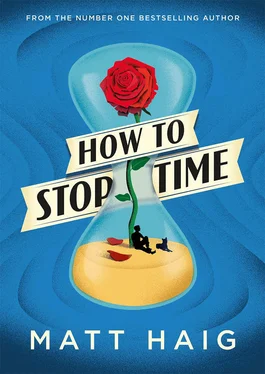
![Мэтт Хейг - Влюбиться в жизнь [Как научиться жить снова, когда ты почти уничтожен депрессией]](/books/28868/mett-hejg-vlyubitsya-v-zhizn-kak-nauchitsya-zhit-sn-thumb.webp)
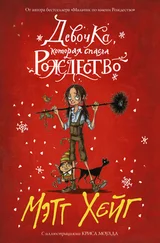

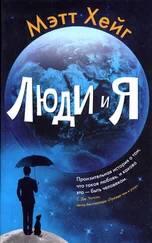


![Мэтт Хейг - Полночная библиотека [litres]](/books/388474/mett-hejg-polnochnaya-biblioteka-litres-thumb.webp)
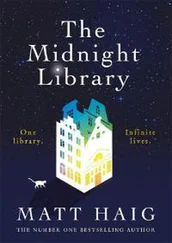
![Мэтт Хейг - Клуб призрачных отцов [litres]](/books/392121/mett-hejg-klub-prizrachnyh-otcov-litres-thumb.webp)

![Мэтт Хейг - Отец Рождество и Я [litres]](/books/421076/mett-hejg-otec-rozhdestvo-i-ya-litres-thumb.webp)
